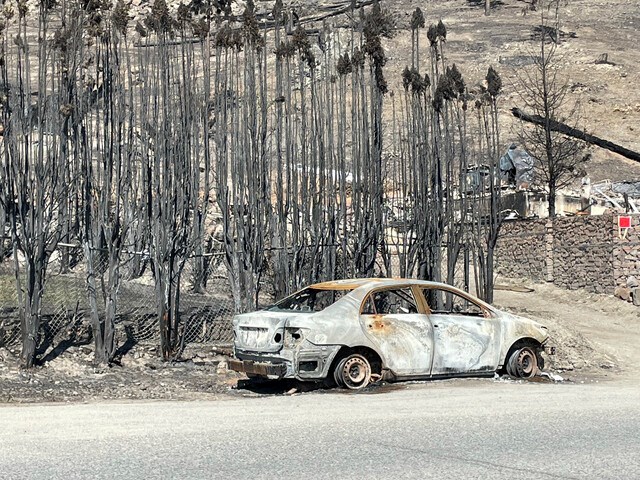As the BC Wildfire Service shifts to winter operations, the McDougall Creek wildfire is still smouldering above West Kelowna.
A local woman who enjoys off-roading and exploring the backcountry came across open flames about five kilometres up Bartley Road earlier this week.
"It's alarming. When I was up there for a drive, I saw a little bit of smoke and I thought, oh, it's just some smouldering and as I got closer, I was like, wow, that's flames," said Terri Anne Boucher.
Fires the magnitude of the McDougall Creek fire sometimes end up being referred to as "zombie fires" — a fire that overwinters deep in the ground and pops back up in the spring.
Boucher took the video on Oct. 23 and decided to share it on social media.
"They’ve said that the fires could be burning into the winter and they’re certainly not kidding," she said in her post. "I did... pour a litre of water on it that I had and I also reported it. I have a feeling that it’s one of those things that they will just let burn out regardless but reported it nonetheless," said Boucher.
The BC Wildfire Service said on social media it is now winding down operations for the season.
"Over the past few months unit crews from around the province have completed seven or more 14-day deployments back-to-back. These expanded attack teams are 22-person crews that travelled all over B.C. this year working on large incidents or interface fires," said BCWS.
The 2023 wildfire season has gone down as the most expensive and most destructive wildfire year on record.
A total of 2236 fires burned 2,849,397 hectares of B.C. forest this season.
The Insurance Bureau of Canada estimated that the fires in the Okanagan and Shuswap alone caused $720 million in insured damage.



